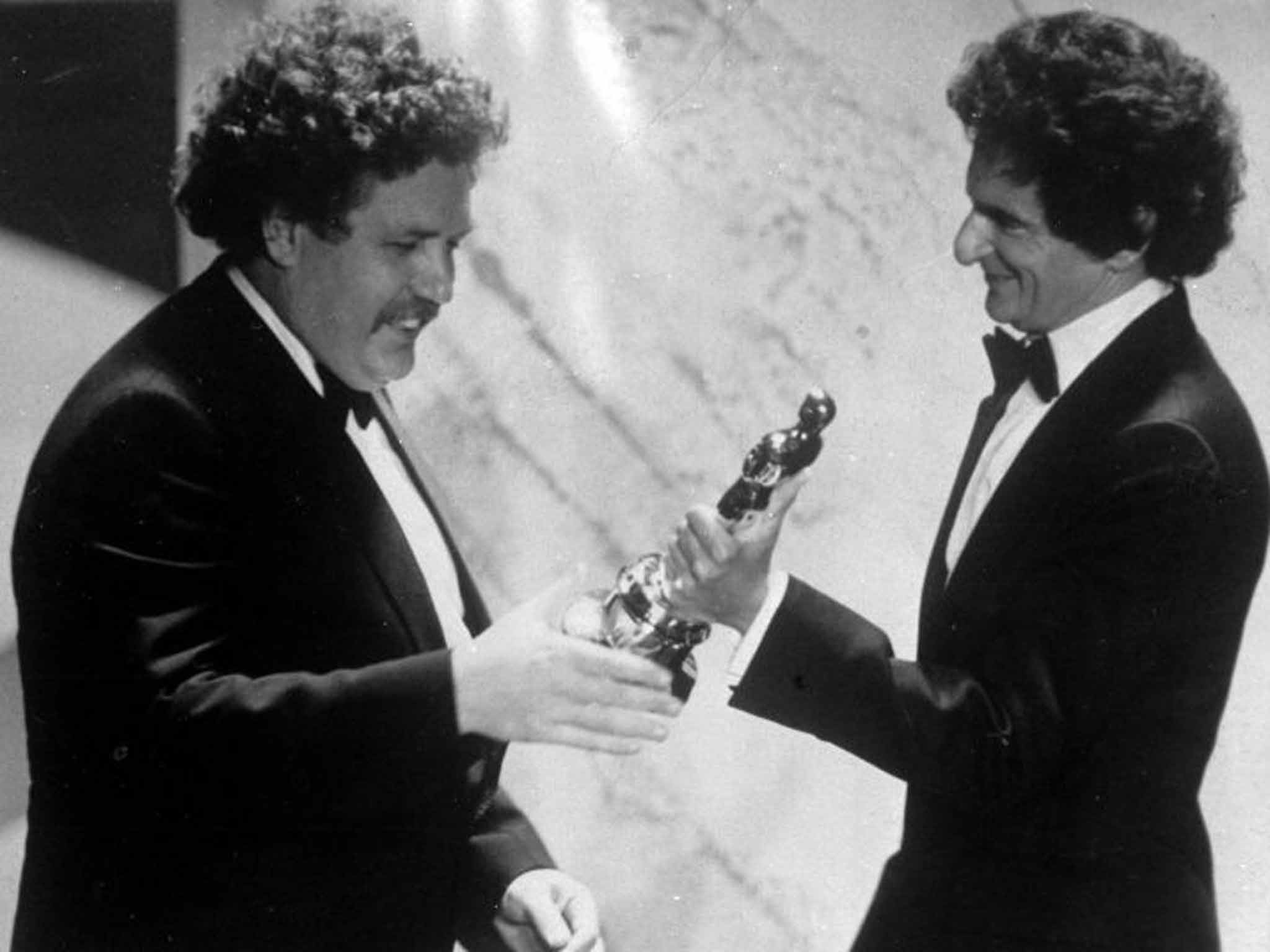Colin Welland: Actor who won a Bafta as a teacher in 'Kes' and won an Oscar for his 'Chariots of Fire' screenplay
He embodied the fashion of authentic voices telling authentic stories

A television storyteller of the premier league, the actor and writer Colin Welland was a vivid, humane presence in the glory days of the single play; despite his bovine appearance and proud Northern persona, his dramas were works of sympathetic anger, elegant, character-driven slices of life populated by straight-talking matriarchs and small-town dreamers.
Like many of the key talents that drove television drama at the time, Welland's inevitable graduation to film curtailed his marathon run of successes. Chariots of Fire (1981) was an enormous hit which chimed well with a Britain embracing conservatism and nostalgia in the year of the Royal Wedding and the Brixton riots; even if it was a world away from the Lancastrian two-up two-downs of most of his television work, It shared his traditional themes of endurance and aspiration. But it was his only major success in the cinema. It won four Oscars, including one for his screenplay, but his fateful clarion call “The British are coming!” would come to haunt him.
He was born Colin Williams in 1934 in Leigh, Lancashire, and educated at Newton-le-Willows Grammar School. After winning a pocket-knife while on holiday in Morecambe for his rendition of “Ave Maria”, he was eager to be a performer (his experiences as a member of a local Gilbert and Sullivan society would inspire one of his least-remembered but best plays, 1973's Jack Point). But his father advised him to become an art teacher, which he did after studying at Bretton Hall and Goldsmith's College. While teaching he had a short stint as a club comedian, but decided to take a shot at a theatrical career and auditioned for David Scase at the Manchester Library Theatre. He was rewarded with the leading role in Pinter's The Birthday Party, duties as an assistant stage manager, and wages of £7 10s a week.
He stayed with the company for a year, then, after an unsuccessful stint as a BBC newsreader, got his break playing PC Dave Graham in Z Cars. The programme was a revolution in television drama, kick-starting a new era for the medium, of tough, domestic storytelling, exciting naturalism and strong social awareness; the television plays that Welland would go on to write were very much part of the legacy of Z Cars's provocative early years.
Welland became much in demand as an actor. His earthy decency lent itself well to roles including a dogged political journalist in Sweeney! (1977), the excitable Willie in Dennis Potter's Blue Remembered Hills (1979) and the steely vicar of Straw Dogs (1971). He had varying success as a comedy player: he was hilarious as a hectoring rural shopkeeper in Simon Gray's Femme Fatale (1993), but the brickie sitcom Cowboys (1981) hasn't aged as well. His best screen role was as the fair-minded teacher Mr Farthing in Ken Loach's Kes (1969) for which he won a Best Supporting Actor Bafta. Stage roles included Pozzo in Waiting for Godot (Lyttelton, 1987) and Winston in Howard Brenton's The Churchill Play (RSC, 1988).
He had two scripts accepted for Z Cars, but they were never produced. However, encouraged by Loach, he wrote his first television play, the rugby romp Bangelstein's Boys (1969), about which a friend tellingly remarked, “you didn't write that, you remembered it”. Roll On 4'O Clock (1970) drew on his experiences as a schoolteacher, while Say Goodnight to Grandma the same year (later to enjoy a run in the West End), a tale of a tug-of-love husband caught between mother-in-law and wife, was a fine example of his gift for the language of the kitchen table and his propensity for tough female characters.
By 1974 he had won a further Bafta and three Writer's Guild Awards. He became one of the key contributors to Play for Today; “Kisses at Fifty” (1972) was probably the peak of his powers, the story of a humdrum coal miner (played beautifully by Bill Maynard, who himself won a Bafta for his performance) who comes alive in middle age when he embarks on a fling with a barmaid. The play was later filmed in Hollywood as Twice in a Lifetime (1986).
Leeds-United (1974), directed with gusto and terrific aplomb by Roy Battersby, was at the time the most expensive television film ever made, a £150,000 epic piece of big-screen movie-making for the small screen. The story of a strike by Leeds clothing workers, it fearlessly offended everyone from the unions to the executives with its attack on the iniquities of industrial relations. Welland then returned to more intimate storytelling for Your Man From Six Counties (1976), a tender story of a boy orphaned by IRA attacks seeking piece in the countryside of Donegal.
Welland, who had been suffering from Alzheimers, embodied a fashion of those times: authentic voices telling authentic stories. He encouraged a young house painter who he had employed to turn his experiences leading an Orange Parade in Glasgow into a script: that writer was Peter McDougall, and the script, Just Another Saturday, won the 1975 Prix Italia.
But although he blazed throughout the 1970s, his career seemed to fade away in later years; a long-awaited project about George Stevenson never came to fruition. The big screen was never really his best platform for his intimate storytelling however, and the small screen eventually turned its back on the single play, betraying writers of his calibre, the people he wrote about, and the people he wrote for.
Colin Williams (Colin Welland), actor and playwright: born Leigh, Lancashire 4 July 1934; married 1962 Patricia Sweeney (three daughters, one son); died 2 November 2015.
Join our commenting forum
Join thought-provoking conversations, follow other Independent readers and see their replies
Comments
Bookmark popover
Removed from bookmarks